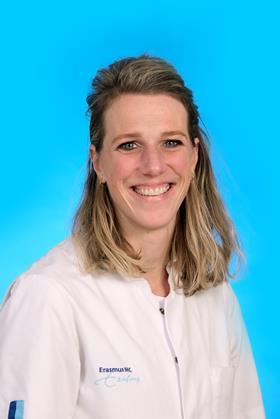Since 2023 the Erasmus Medical Center has a new production facility for Advanced Therapy Medicinal Products (ATMP). These products are (genetically) modified cells or tissue to treat various diseases like cancer. Sofieke de Wilde, Hospital Pharmacist and head of ATMP facility talks about developing therapies in an academic hospital environment and its challenges.
“In our ATMP facility we develop therapies in which cells from the patient’s immune system are modified in such a way that they can recognize and destroy cancer cells and give a boost to the patient’s own immune system. They are used in clinical research for the treatment of various types of tumors”, says De Wilde.

Examples of ATMP are TCR T cell therapy and dendritic cell therapy. “Apart from TCR T cell therapy for melanoma we also have a lot of experience with dendritic cell therapy. The main concept of cell therapy is, extracting blood from the patient, modifying the blood cells in the ATMP facility and giving them back to the patient. Currently we are developing dendritic cell therapy for treatment of lung cancer and pancreatic cancer. We have experience in phase I/II and III trials with these therapies.”
Challenge
“Research in academic centers is very important for the development of the initial phase of these types of medicines. However, it is a challenge to ensure that the therapy after the pre-clinical phase gets to clinical phase 1 and 2 and finally reaches the patient”, says De Wilde. “Sometimes a therapy is picked up by the industry and then they take over the development for the market. It happens that high prices are asked for the therapy after its official registration. The risk is that in case theses therapies are not reimbursed by health insurances, patients cannot benefit from the therapies.
Our goal is to make patients better and not to make a profit. Therefore, hospitals have an important role in ensuring that the patient still receives the treatment.”
Single-use components
Single-use components play an important role in the clinical research and therapy at the ATMP facility. De Wilde: “The production is (almost) always performed using (double or even triple bagged) sterile disposable devices/tools in order to produce in accordance with cGMP guidelines.”
Although single-use components are indispensable it doesn’t always feel good in terms of impact on the environment according to De Wilde. “So much plastic is used and sometimes the single-use components are packaged in two or three layers of again - plastic. And all this is thrown away and incinerated after use.” She hopes that something can be done to change this.














